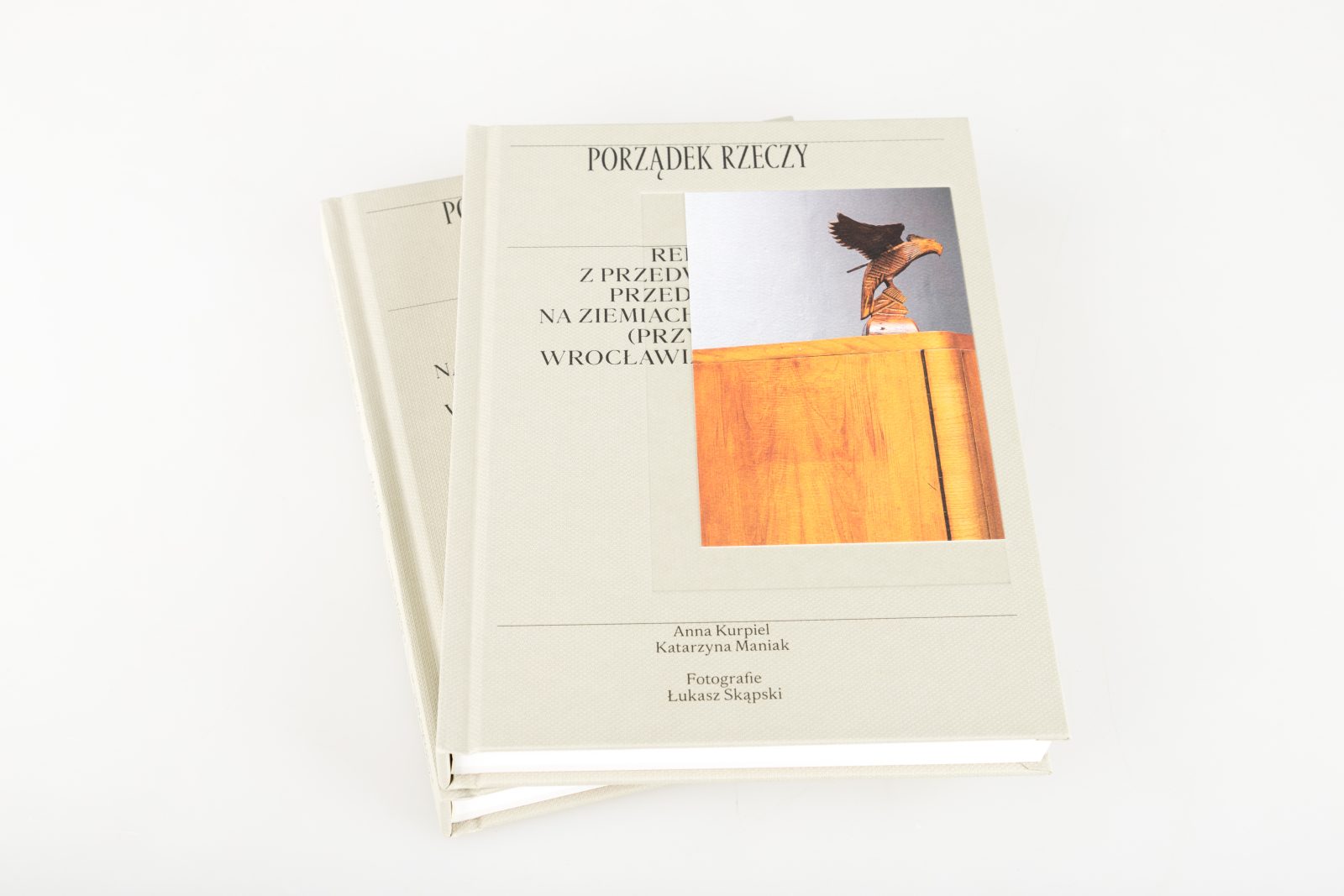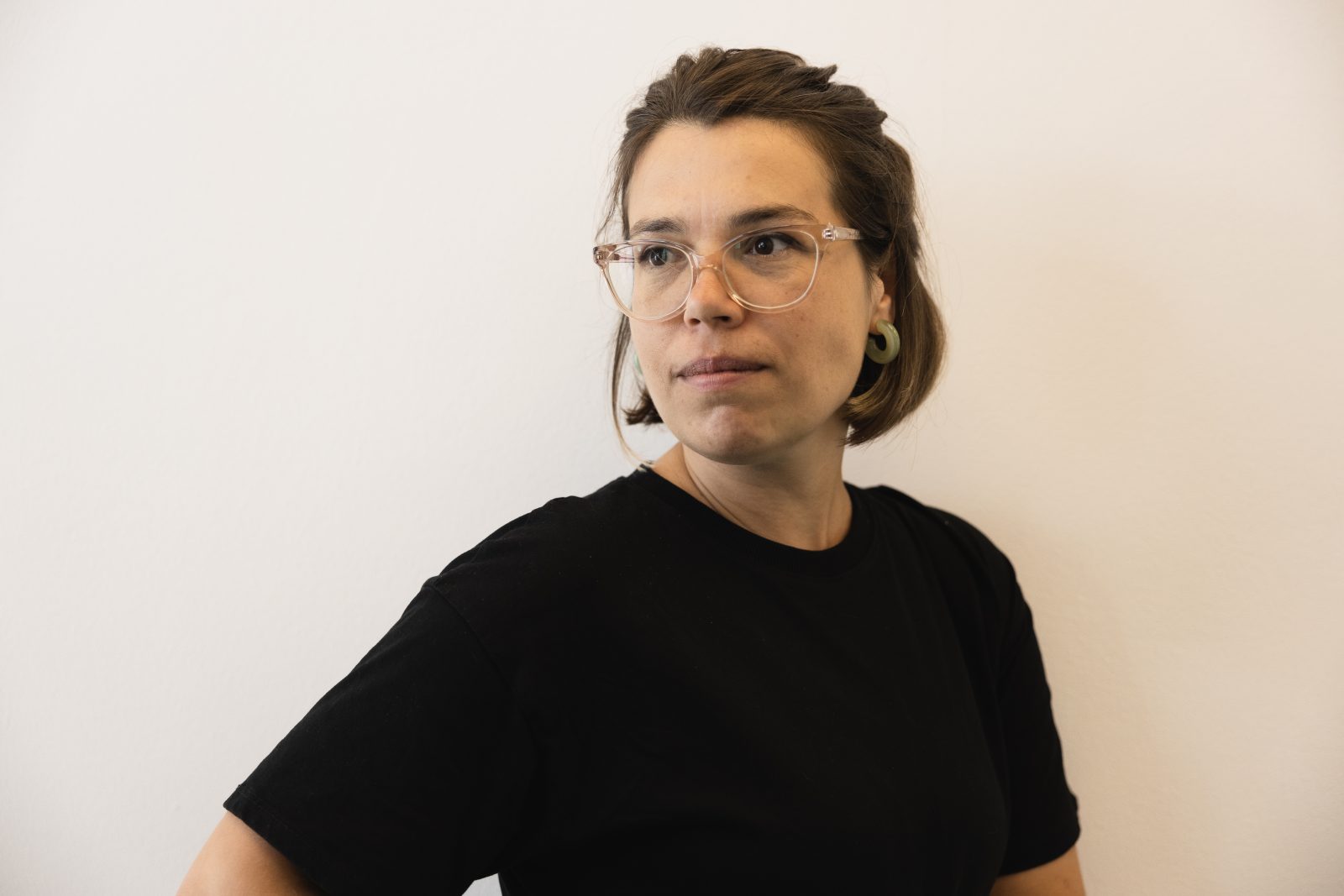
Porządek rzeczy awarded
A book about “post-German” items, co-authored by our scientist Anna Kurpiel and Katarzyna Maniak from the Jagiellonian University has just been awarded by the Polish Ethnological Society. The text, along with a visual essay by Łukasz Skąpski is a surprising description of attitudes and practices evoked by pre-WWII items in contemporary Wrocław and Szczecin.
“Being awarded 1st place in this year’s edition of the contest is a great honour for us”, says dr Anna Kurpiel of the Department of Social and Ethnographic Sciences of the Willy Brandt Center for German and European Studies, University of Wrocław. “Our book Porządek rzeczy. Relacje z przedwojennymi przedmiotami na ziemiach zachodnich (przypadek Wrocławia i Szczecina) [The order of things. The Order of Things. Relationships with Pre-war Objects in the Western Territories of Poland]has been appreciated by an honourable group of Polish ethnologists and cultural anthropologists”, she emphasises.

Porządek rzeczy addresses attitudes and practices evoked by pre-WWII items in contemporary Wrocław and Szczecin. The term “post-German”, a colloquial phrase used to describe items left on the territories which were incorporated into the Polish borders after the Second World War, suggests that what is “German” is bygone, discontinued. Ethnographic research conducted with the aid of art suggests the opposite. “The process of acquisition still goes on; the relations between people and objects are being continued, discovered, and bonded anew”, dr Kurpiel says. “The book is thereby devoted to the ways of using the pre-war heritage, as well as the acts of its adjustment and possession, stretched over time.”
“We describe affined items, items marked by class, items for sale, useful items, as well as those which make up an integral part of the household”, she says. “They co-create a network of associations which elude the black-and-white, post-war view of reality according to which the attitudes towards the past are unequivocally either its approval or abjuration. The stories about relations with objects create two separate, though simultaneously developed narrations: the text and the visual essay by Łukasz Skąpski. Together they concentrate on the question of what the German past means to the citizens of Polish cities.”
The Antoni Kalina Award is granted by the Polish Ethnological Society in three categories:
- a book of special meaning to ethnology, socio-cultural anthropology
- an exhibition of special meaning to ethnology, socio-cultural anthropology
- an event of special meaning to ethnology, socio-cultural anthropology.
The first edition of the contest was on 9 February 2019, during the Polish Nationwide Day of Ethnography, Ethnology, and Cultural Anthropology, or the anniversary of the development of the Polish Ethnological Society which came into being in 1895 in Lviv.
Edited by kg
Translated by Natalia Tkaczuk (student of English Studies at the University of Wrocław) as part of the translation practice.



